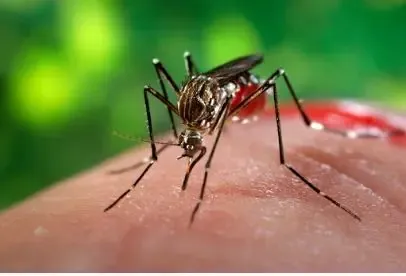New Initiative in Australia Targets Mosquitoes That Spread Diseases

Canberra, Dec 10 (NationPress) Australia's national science agency has unveiled a new initiative aimed at combating disease-carrying mosquitoes.
Launched on Tuesday, Oxitec Australia, a partnership between the Commonwealth Scientific and Industrial Research Organization (CSIRO) and the UK biotechnology firm Oxitec, will introduce genetically modified male mosquitoes equipped with a gene designed to diminish the population of pestilential females, according to Xinhua news agency.
This collaboration will focus on two of the most lethal species of virus-transmitting mosquitoes in the Pacific, Aedes aegypti and Aedes albopictus, in an effort to curb the transmission of dengue fever, Zika virus, and yellow fever.
Brett Sutton, director of Health and Biosecurity at CSIRO, characterized this initiative as a significant chance to tackle the escalating threat posed by invasive and foreign pests.
"Challenges such as climate change and increasing pesticide resistance will only heighten the risks to the health of Australians and our region from vector-borne diseases," he stated.
"This technological framework could also pave the way for developing solutions for a variety of pests that endanger livestock, crops, and our food systems," he noted.
As reported by the World Health Organization, vector-borne diseases constitute over 17 percent of all infectious diseases, leading to more than 700,000 fatalities globally each year.
Dengue is the most widespread viral infection transmitted by Aedes mosquitoes, resulting in an estimated 40,000 deaths annually.
Oxitec's self-limiting Aedes aegypti mosquitoes are genetically modified to contain a laboratory-designed gene. When released males mate with wild females, the gene causes the offspring to produce a protein known as tTAV.
This protein eliminates biting females while allowing males to continue transmitting it.
Oxitec Australia is also striving to devise a strategy against the Asian tiger mosquito, Aedes albopictus, to mitigate a considerable invasion threat to mainland Australia.
This highly invasive and aggressive mosquito is already present in the Torres Strait Islands off Australia's northern coast, where it propagates dengue, Zika, and chikungunya viruses.









